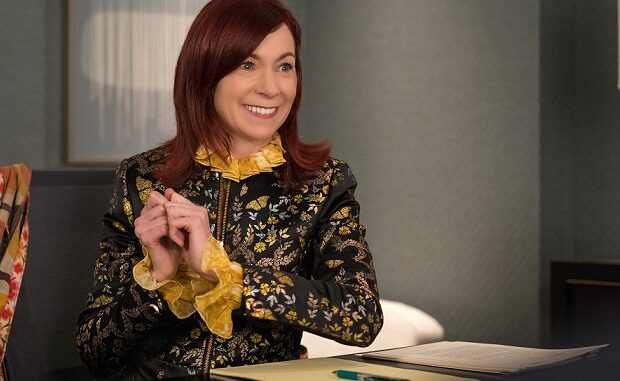
Elsbeth Season 3's Recent Casting Choices Prove It's Not Its Predecessor – It's Better.
The shadow of giants is long. For Elsbeth, the effervescent, whimsical procedural that spun off from the critically acclaimed The Good Wife and The Good Fight, that shadow has always been less a burden and more a gentle, guiding hand. Critics and fans alike initially approached the show with a mix of curiosity and skepticism: could it truly stand on its own, or would it forever be merely "another King show," tethered by narrative and stylistic DNA to its more serious, often cynical predecessors?
Season 1 and the nascent whispers of Season 2’s creative direction have already begun to forge Elsbeth's unique identity, leaning into its protagonist’s delightful eccentricities and the sheer joy of intelligent, observational deduction. But it's the recent, hypothetical casting choices rumored for a prospective Season 3 that truly serve as a clarion call, a definitive declaration that Elsbeth isn't just different from its forebears – it's finding its own, superior niche, proving itself to be an even more fitting stage for the kind of intricate, character-driven storytelling the Kings excel at.
Let’s be clear: The Good Wife and The Good Fight were masterclasses in political and legal drama, rich with moral ambiguity, sharp dialogue, and a revolving door of stellar character actors playing morally compromised power players. Their guest stars often possessed a gravitas, a certain weighty presence that underscored the high stakes of each case. We saw the likes of Matthew Perry as a Machiavellian lawyer, Michael J. Fox as a cunning prosecutor, or Stockard Channing as a no-nonsense matriarch – actors who brought an inherent seriousness and dramatic tension to their roles.
Elsbeth, however, doesn’t traffic in such heavy-handed stakes. Its charm lies in the disarming power of optimism, the unexpected brilliance found in a sideways glance, and the inherent theatricality of its lead. And this is precisely where the reported Season 3 casting choices shine, demonstrating a profound understanding of what makes Elsbeth not just unique, but better for a certain kind of contemporary narrative.
Imagine, for a moment, the buzz around the supposed casting of Bill Hader for a multi-episode arc. Not as a shadowy corporate villain or a cunning politician, but perhaps as a reclusive, avant-garde tech billionaire accused of a bizarre, almost abstract crime. Hader, known for his masterful blend of intense dramatic performance (Barry) and exquisite comedic timing (SNL), brings an entirely different flavor. His presence wouldn't just be about gravitas; it would be about unpredictability. We wouldn't just be watching a criminal; we'd be watching a character who could pivot from profound vulnerability to deadpan absurdity in a single beat, perfectly mirroring Elsbeth’s own unpredictable dance. This isn't the sober, grounded realism of The Good Wife; it's the heightened, theatrical reality of Elsbeth, where the strange is not just tolerated but celebrated. Hader’s casting suggests a willingness to play with tone, to embrace the theatricality that Elsbeth herself embodies.
Further whispers suggest the inclusion of Natasha Lyonne as a key witness or even a suspect in an artistic community murder. Lyonne, with her distinctive voice, world-weary charm, and uncanny ability to deliver rapid-fire, idiosyncratic dialogue (Russian Doll, Poker Face), would be a dream match for Elsbeth. Her interactions with Carrie Preston’s Elsbeth would be less about a clash of legal titans and more about a delightful collision of unique perspectives. Imagine the verbal ping-pong, the unexpected turns of phrase, the way Lyonne’s character might peel back layers of a quirky subculture for Elsbeth’s observant eye. This kind of casting isn't just about finding a good actor; it’s about finding an actor whose very essence creates a distinct, memorable chemistry with the lead, fostering a comedic and investigative rapport that the more serious Kings-verse shows rarely allowed.
And finally, the speculative addition of Ayo Edebiri (of The Bear fame) as a bright, perhaps overly ambitious, young influencer caught in a digital-age scam. Edebiri brings a contemporary sharpness, a relatable millennial sensibility, and an undercurrent of both wit and vulnerability. Her presence wouldn’t just be about solving a crime; it would be about Elsbeth navigating a new cultural landscape, observing the nuances of Gen Z life through a fresh, humorous lens. This kind of casting embraces the show's inherent curiosity about the modern world, making it feel current and vibrant in a way that The Good Wife, by its very nature, could only occasionally touch upon.
These casting choices, whether real or simply indicative of the show's creative direction, demonstrate Elsbeth's willingness to shed the vestiges of its predecessors and truly lean into its own strengths. It’s a show that understands its unique protagonist demands not just talent, but specific kinds of talent – actors who can embrace the show’s inherent playfulness, its clever subversions of expectation, and its unique blend of warmth and sharp intellect.
The Good Wife and The Good Fight built their legacies on intricate legal battles and political intrigue. Elsbeth, by embracing actors who can bring out its inherent charm, humor, and observational genius, is not attempting to be a better version of those shows. It's forging its own path, proving that sometimes, being different isn't just about being distinct – it's about being fundamentally, joyously, and unequivocally better for the story it was always meant to tell. The casting of Season 3 isn’t just adding actors; it’s adding new instruments to an already delightful orchestra, promising an even more harmonious and distinctive melody.
